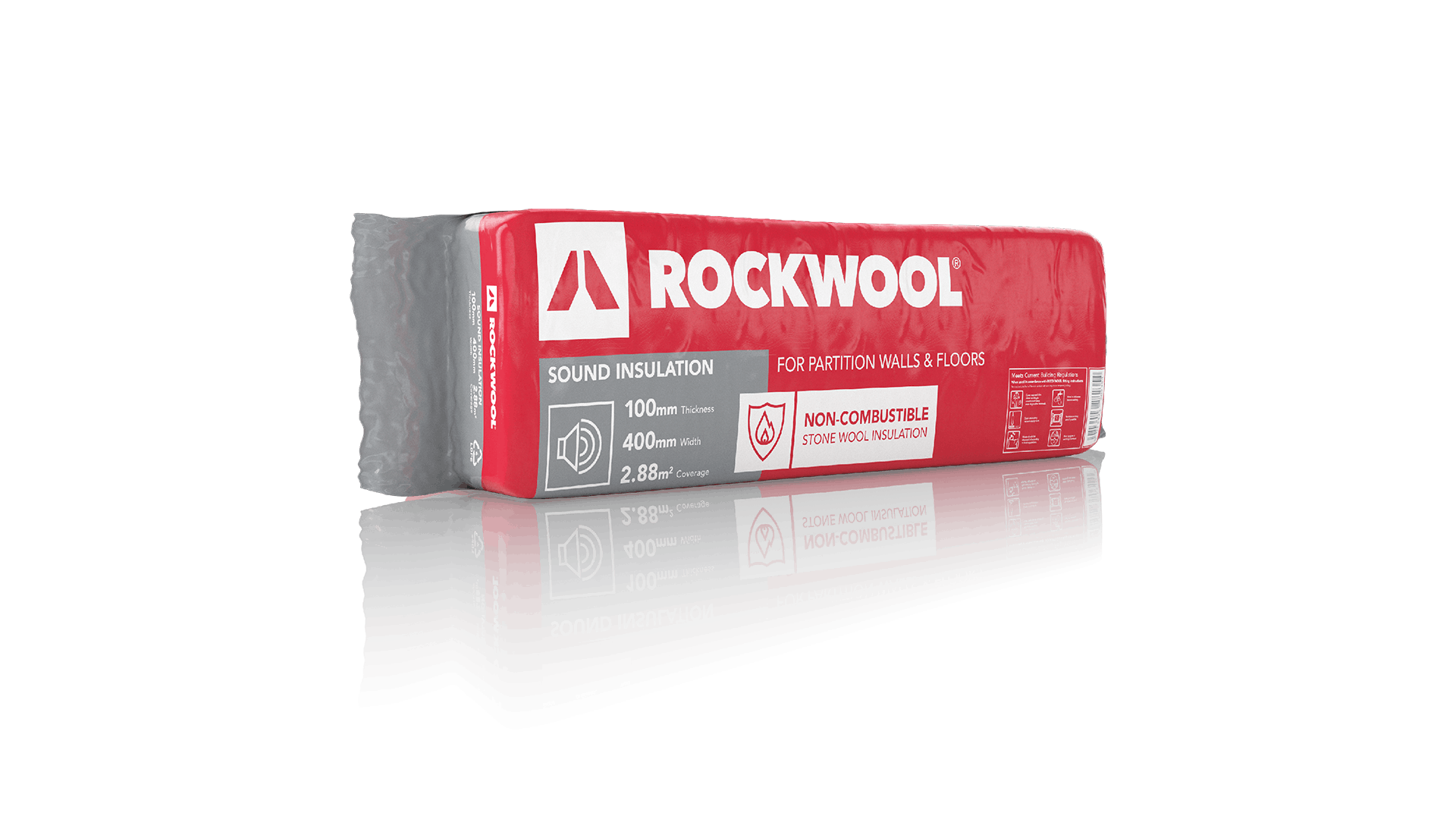Acoustic wall insulation helps reduce sound transfer through internal and external walls in both residential and commercial properties, in order to enrich modern living.
Sometimes referred to as ‘sound insulation’, it promotes comfort and privacy, protecting people from ‘outside-to-inside’ noise such as traffic and ‘inside-to-inside’ noise from neighbouring dwellings.
In modern times, noise has come to be recognised as a ‘pollutant’ capable of causing psychological and other health effects1 – making sound absorbing insulation all the more important. Installing acoustic insulation can support your soundproofing strategy. Put simply, it adds mass which makes it more difficult for sound to pass through the structure.
The ROCKWOOL range features acoustic insulation suitable for applications including:
- Partition walls – stud walls separating spaces within a property
- Party walls – cavity walls, timber and metal framed walls, and linings on base walls; all of which offer protection between dwellings
- Cladded and ETICS Façade – insulation installed in façade and external wall systems (ETICS)
This page will provide more information on acoustic wall insulation, guidance on using ROCKWOOL stone wool insulation and much more.






















